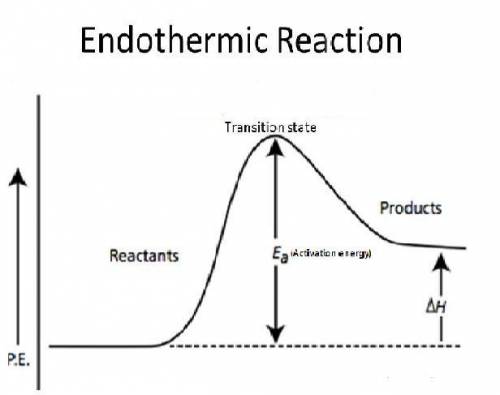Why does every chemical reaction require a certain amount of activation energy?
a.
en...

Chemistry, 28.01.2020 07:31 kingdevin16
Why does every chemical reaction require a certain amount of activation energy?
a.
energy is released when the reactants begin to react.
b.
energy lost to the environment during the reaction must be replaced.
c.
forming the activated complex requires energy.
d.
the products have more potential energy than the activated complex.
e.
the reactants have less potential energy than the products.

Answers: 1


Another question on Chemistry

Chemistry, 22.06.2019 02:20
Brainliesttt me asap! the below reaction can be categorized as more than one type of reaction. which reactions are these, and what are the types of reactions?
Answers: 1

Chemistry, 22.06.2019 03:40
Astudent is given a sample of a blue copper sulfate hydrate. he weighs the sample in a dry covered porcelain crucible and got a mass of 23.875 g for the crucible, lid, and sample. the mass of the empty crucible and lid was found earlier to be 22.652 g. he then heats the crucible to expel the water of hydration, keeping the crucible at red heat for 10 minutes with the lid slightly ajar. on colling, he finds the mass of crucible, lid, and contents to be 23.403 g. the sample was changed in the process to very light clue anhydrous cuso4. if there are again 100.0 g of hydrate, how many grams of cuso4 are in it? how many moles of cuso4? (hint: molar mass of cuso4 = 159.6 g / mole. what per cent of the hydrate is cuso4? you may convert the mass of cuso4 to moles.)
Answers: 3

Chemistry, 22.06.2019 04:00
Tin has ten stable isotopes. the heaviest, 124sn, makes up 5.80% of naturally occuring tin atoms. how many atoms of 124sn are present in 82.0 g of naturally occurring tin? what is the total mass of the 124sn atoms in this sample?
Answers: 3

Chemistry, 22.06.2019 20:10
The lattice enthalpy (formation of ionic solid from ions in the gas phase) for agcl(s) is -916 kj/mol and the hydration enthalpy (dissolution of gaseous ions into water) is -850 kj/mol. how much heat (in joules) is involved in forming 1l of saturated agcl solution (1.8 × 10-4 g / 100 ml water) by dissolving agcl(s)? assume solution volume does not change much upon dissolution. the equations are given below. ag+(g) + cl−(g) æ agcl(s)
Answers: 3
You know the right answer?
Questions




Mathematics, 05.12.2020 03:00

Mathematics, 05.12.2020 03:00

Mathematics, 05.12.2020 03:00


Mathematics, 05.12.2020 03:00


Mathematics, 05.12.2020 03:00



Mathematics, 05.12.2020 03:00

Arts, 05.12.2020 03:00

Mathematics, 05.12.2020 03:00

Chemistry, 05.12.2020 03:00

History, 05.12.2020 03:00

Mathematics, 05.12.2020 03:00





